WE-Care Programme
Scroll to explore or go to related resources
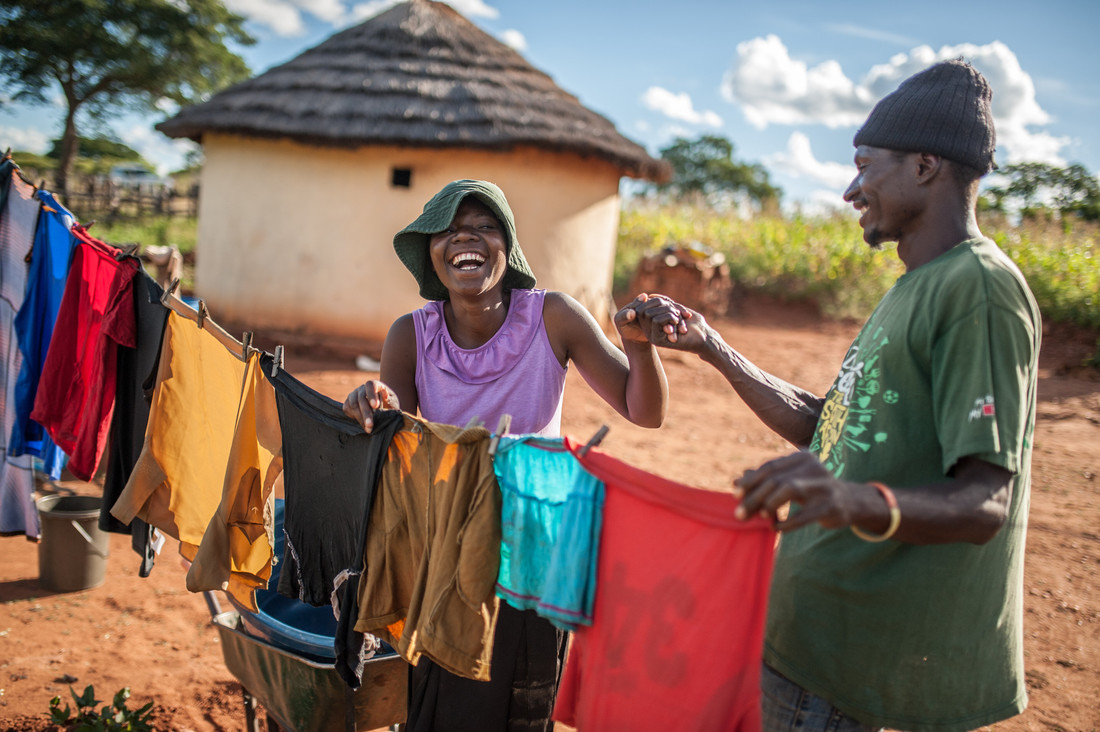
AT A GLANCE
Tackling heavy and unequal unpaid care and domestic work to create lasting change for women and girls
Across the globe, unpaid care and domestic work (UCDW) sustains communities and economies. It provides essential care for children, sick and elderly people, and people with disabilities. Without unpaid care, the global economy as we know it would grind to a halt.
Yet this work falls disproportionately on women and girls, limiting their opportunities to participate in decent paid employment, education, leisure and political life. Heavy and unequal UCDW traps women and girls in cycles of poverty and stops them from being part of solutions.
The WE-Care Programme works towards a just and inclusive society by recognizing, reducing and redistributing UCDW. We envision a world where women and girls have more choice at every stage of their lives. So we work to ensure carers’ voices are heard in decision making about policies and budgets at all levels.
Read our latest annual report here.
Read WE-Care Stories, our quarterly newsletter
Read more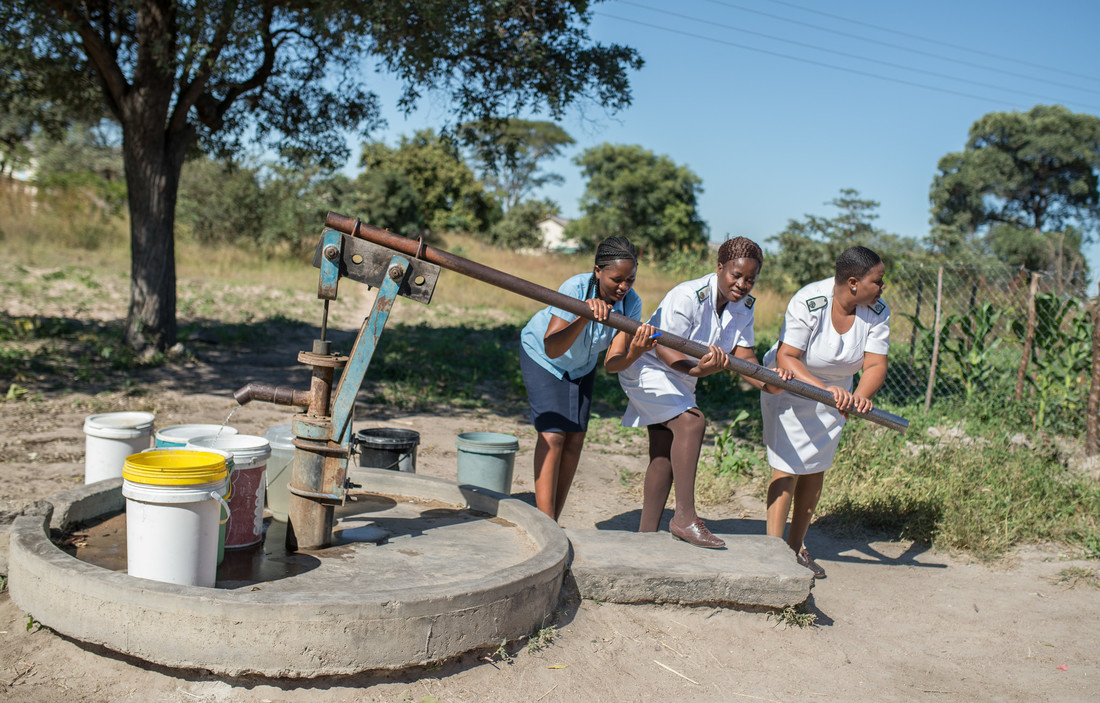
#AfricanWomenCan
In celebration of the African Women’s Day, we partnered with African artist Monica Obaga to deliver this continent-wide campaign. Through this, we envisioned a future where African women and girls have control over how they would spend their precious time.
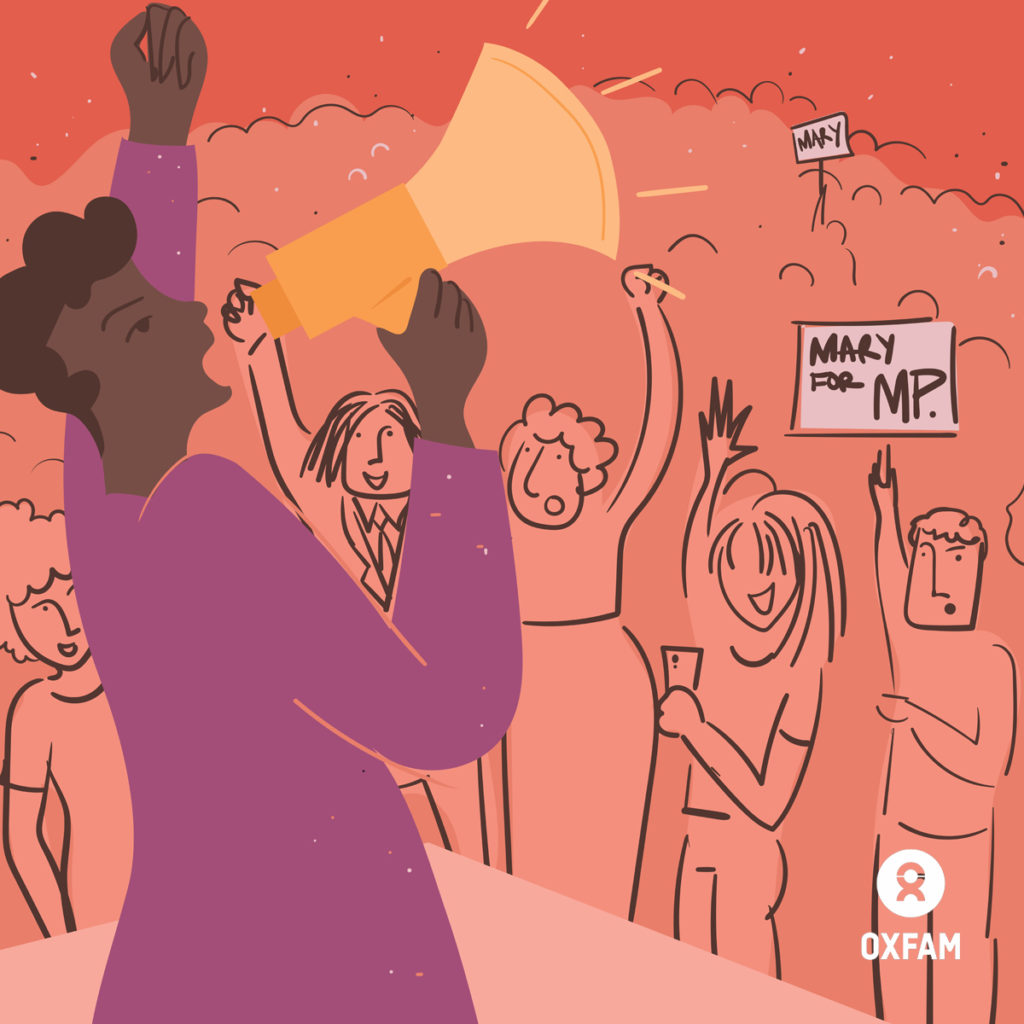
#HowICare
On Father’s Day 2020, we highlighted the realities and difficulties of providing care, specifically unpaid care, in order to support carers during the COVID-19 pandemic. This data-informed campaign reached over 440 million people worldwide.
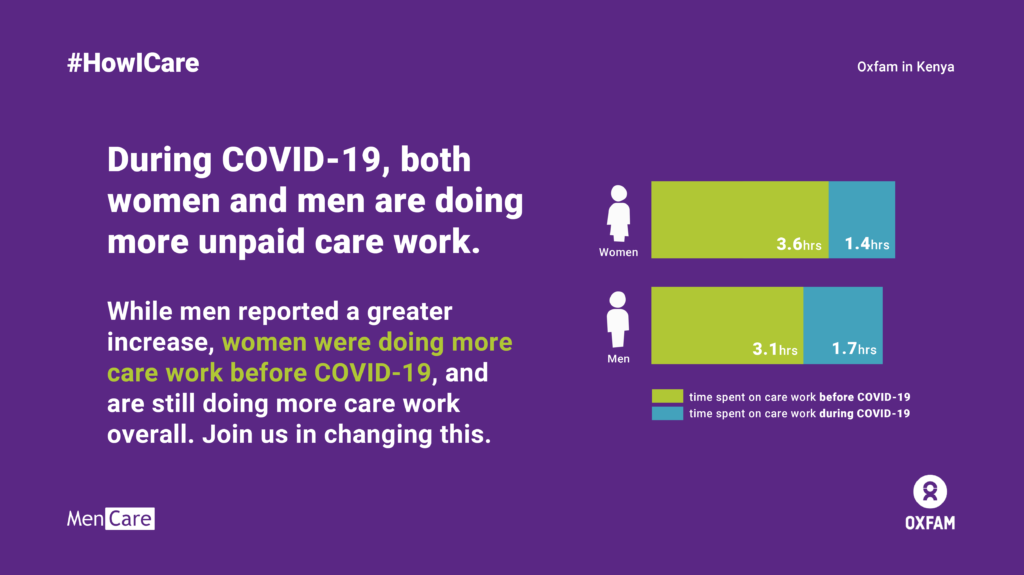
#iLabaYu
In the Philippines, we encouraged men to step up in doing care work at home. From a nontraditional launch (during a mass wedding) to proactive online engagements, our campaign reached more than 34 million people with positive messages on unpaid care.
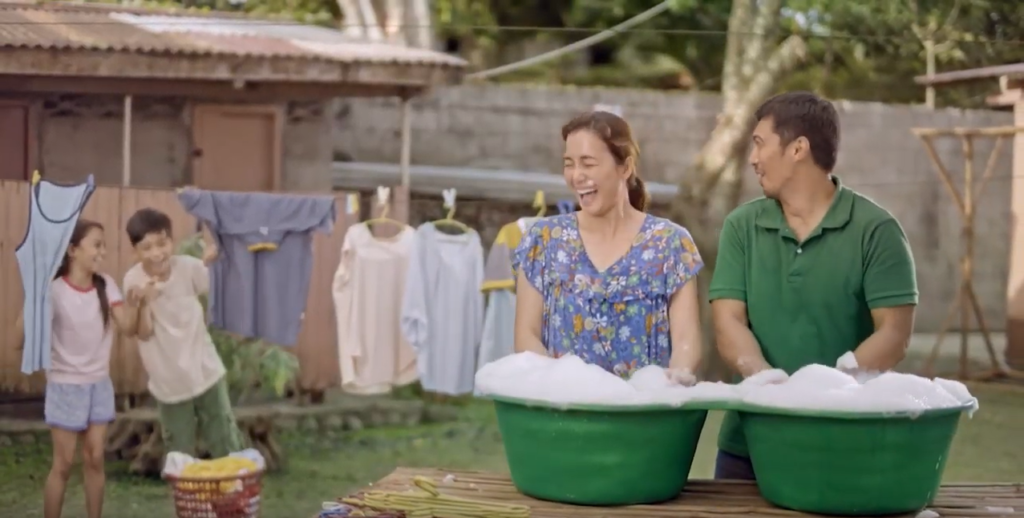
Measuring and Understanding Unpaid Care and Domestic Work: Household Care Survey Toolkit

Rapid Care Analysis Training Modules

Photo captions and credit
Ulita Mutambo’s husband Muchineripi Sibanda helps her hang up laundry outside their home in Ture Village, Zvishevane region, Zimbabwe. Aurelie Marrier d’Unienville. Nurses from Somerton clinic collect water from a local pump outside the clinic in Masvingo District, Zimbabwe. Aurelie Marrier d’Unienville




